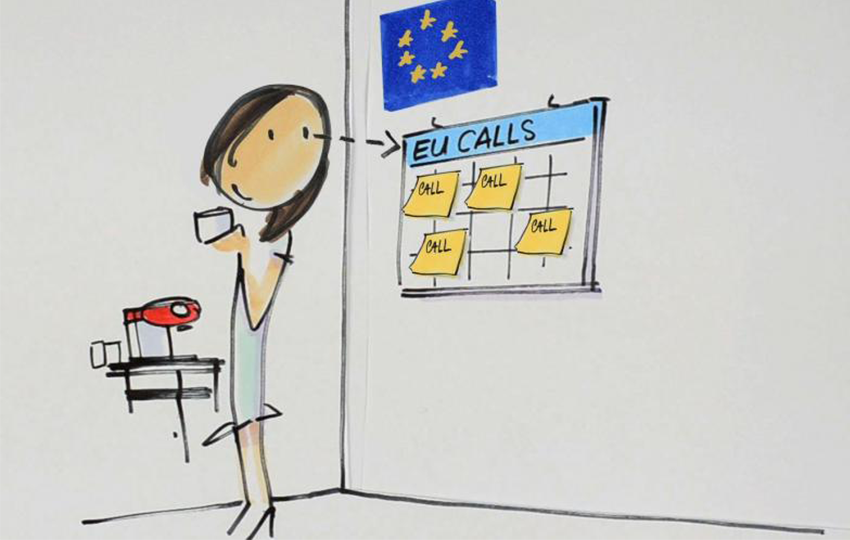What is it about?
Innovation support agencies, i.e. the regional and national agencies that design and/or implement innovation support programmes for SMEs are important intermediaries for SME innovation. Focus, design and delivery mechanism of innovation support programmes determine to a large extent the economic impact from the supported actions and the satisfaction of the beneficiaries with the support provided. The European Union has supported mutual policy learning and exchange of ‘good practices’ in different programmes, including for example the Seventh Framework Programme (FP7), the Competiveness and Innovation Framework Programme and INTERREG. However, the transfer of good practices in SME innovation support, the enhancement of existing and the establishment of new innovation support programmes for SME remains slow; and SMEs benefitting from support programmes still often remain dissatisfied with the services received.
The PRO-INNO Europe ‘INNO-Partnering Forum’ (IPF, 2009-2012) has made some significant contributions to formulating the requirements for a permanent learning mechanism for SME innovation support agencies: learning activities have to be based on clear methodologies and they have to be demand driven, launched at the moment agencies themselves recognise the need to revise programme formats. Furthermore, peer learning activities need to benefit from a secretariat or an animation structure that assures horizontal flow of information among interested agencies. In a collaborative exercise the IPF has developed two methodologies in this respect: a quality management system implemented through a peer review system based on the EFQM methodology and a ‘twinning+’ methodology that combines elements of traditional peer reviews and twinning in small learning groups of interested agencies. It is the objective of this action to make available to national and regional innovation agencies these two methodologies as elements of a permanent peer learning environment and to give incentives to the agencies to engage more frequently in peer learning activities.
Scope:
The proposed activities will provide incentives in the form of small lump sum grants to national and regional innovation agencies for engaging in peer learning on all topics relevant for design and delivery of innovation support programmes for SMEs. This should be challenge-driven, based on an agency’s intention to revise its programme formats or introduce a new scheme, and lead to the development of common understanding of a given support service. The support to joint learning activities shall be available at any time when need and opportunity for policy learning in agencies arises. Peer learning is open for all topics for a better innovation support to SMEs. In the context of this action however, only the ‘Twinning+’ methodology, as well as the quality management scheme for innovation agencies based on EFQM, are recognised as learning methods. Funding for grants awarded under this topic will take the form of a fixed lump sum of EUR 15.000 / 50.000.
Applicants should be aware that this is not purely an action to promote the exchange of good practices. The aim is to investigate and develop by means of peer learning new topics and approaches in innovation support to SMEs with an intention to put newly developed skills into practice.
Expected Impact:
- The number of innovation agencies engaged in peer learning activities significantly increases.
- The results of the peer learning are taken up by national and regional innovation support programmes, including those co-financed by European Structural and Investment Funds.
- A broad range of new topics and approaches in innovation support to SMEs is investigated and developed by peer learning activities of national and regional innovation agencies. Pilot agencies design and implement programmes based on these new approaches
- The wider use of quality management in innovation agencies enhances efficiency of service delivery and customer satisfaction and accelerates the learning process.
In the same framework, IED has already implemented several innovative projects which included innovative practices. If you are interested in applying for this call you could contact us and further discuss the available options.
Submission deadline: 09 October 2018 17:00 (Brussels time)
Available Budget: INNOSUP-05-2018-2020 – CSA-LS CSA Lump sum: 500,000
Funding for grants awarded under this topic will take the form of a fixed lump sum of EUR 15.000 / 50.000
Eligibility of the applicants
- Legal entities established in the following countries and territories will be eligible to receive funding through Horizon 2020 grants:
- International European interest organisations4 will also be eligible to receive funding from Horizon 2020.
- Legal entities established in countries not listed above will be eligible for funding when such funding is explicitly foreseen in the call.

